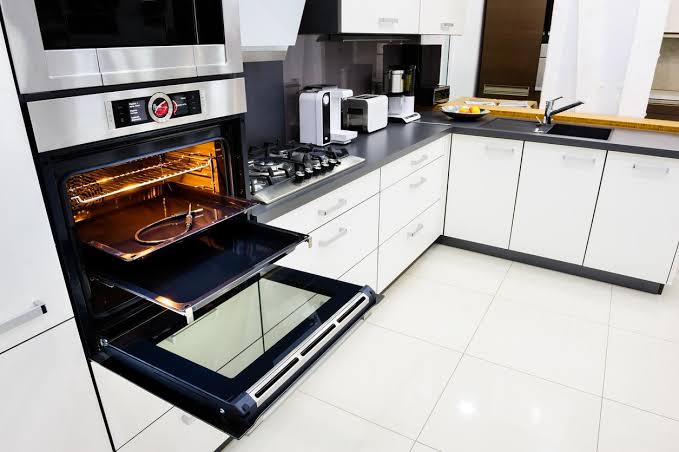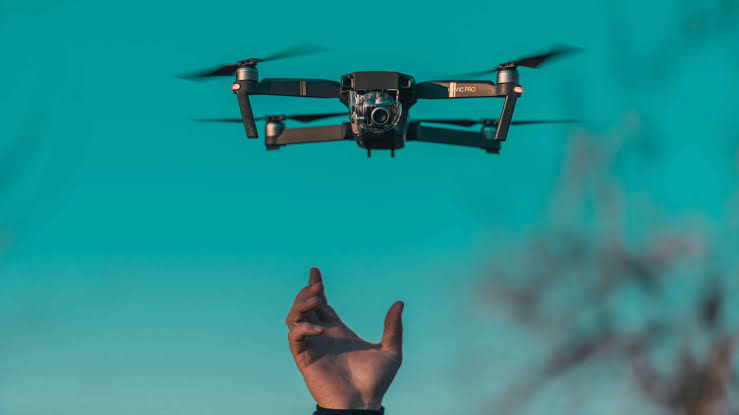In today’s tech-driven world, the kitchen is no longer just a place for cooking—it has evolved into a smart, intuitive space that makes daily routines easier, faster, and even more enjoyable. Thanks to the rapid advancements in artificial intelligence, machine learning, Internet of Things (IoT), and mobile integration, smart kitchen gadgets are now capable of doing much more than simply automating basic tasks. They assist in meal planning, monitor nutrition, conserve energy, and ensure that every dish is cooked to perfection. As of July 2025, these devices are smarter and more accessible than ever before, transforming kitchens across the world into highly efficient culinary hubs.
Smart Refrigerators That Do More Than Just Cool
Gone are the days when a fridge was only a storage unit for perishable food. Today’s smart refrigerators are equipped with internal cameras, AI-powered inventory systems, and touchscreens that display everything from recipes to grocery lists. Some models even connect to your smartphone and send real-time alerts when you’re running low on essentials like milk or eggs. A few leading brands in 2025 now offer fridges that can suggest meals based on what’s inside, cutting down on food waste and making meal planning much easier.
Many of these smart fridges are integrated with voice assistants like Alexa or Google Assistant, allowing users to interact with their appliance hands-free while cooking. You can ask it to show you what’s inside, recommend a low-calorie recipe, or remind you of expiration dates. Some models also include built-in water filters with automated reordering features through Amazon Dash or similar services.
Voice-Controlled Kitchen Assistants and Displays
Voice-activated assistants have become central to the modern kitchen experience. Devices such as the Amazon Echo Show, Google Nest Hub Max, and newer AI-integrated kitchen hubs introduced in 2025 can now guide users step-by-step through complex recipes while providing substitutions, timers, and nutritional data in real-time.
These assistants are more than just digital recipe books—they can adjust oven temperatures, set timers, and control lighting or music, creating a seamless cooking environment. Most now feature high-definition displays, making it easier to follow video instructions or conduct hands-free video calls with family or professional chefs for live cooking sessions. Their integration with apps like Yummly, AllRecipes, and Samsung SmartThings makes them a cornerstone of today’s connected kitchen.
Precision Cooking with Smart Ovens and Stoves
Smart ovens and stovetops have seen dramatic improvements in recent years. In 2025, many models come with AI-powered cooking sensors that automatically detect the type of food being cooked and adjust the temperature and cooking time accordingly. This takes the guesswork out of baking, roasting, or broiling. Popular brands like June, Tovala, and GE Profile now offer smart ovens that can be controlled via smartphone apps, providing full remote operation capabilities.
Some smart ovens also feature built-in cameras and Wi-Fi connectivity, enabling users to monitor their dishes from anywhere. These cameras are equipped with machine learning algorithms that can recognize over 1,000 different foods and suggest the best cooking methods. Advanced versions even have voice capabilities, allowing users to issue commands like “preheat to 350 degrees” without lifting a finger.
Intelligent Coffee Makers and Beverage Systems
Mornings in 2025 have become easier thanks to smart coffee makers that brew your favorite drink exactly how you like it. With integrated user profiles, these devices remember personal preferences—from brew strength to temperature and milk-to-coffee ratios. Connected through mobile apps or smart home assistants, users can schedule a brew time or start the process from bed.
Some top-tier machines also feature AI-powered diagnostics that notify users when it’s time to clean or replace parts, ensuring optimal performance. In addition to coffee makers, newer smart beverage systems can make protein shakes, smoothies, or even mocktails using pre-set recipes. This has made staying hydrated and healthy far more convenient.
Automated Kitchen Cleaning with Smart Dishwashers and Trash Systems
Cleaning up after meals is often the most dreaded part of cooking, but smart dishwashers and waste management systems have revolutionized the process. Modern dishwashers are now equipped with soil sensors that determine the optimal wash cycle, saving both water and electricity. They can be scheduled remotely and often include smartphone alerts for maintenance needs or cycle completion.
Trash cans, too, have become smarter. Products like the Townew T Air Lite and similar models launched in 2025 can seal and replace bags automatically, contain odor with advanced filters, and even sort recyclables from waste using embedded sensors. These upgrades not only save time but also promote sustainability in everyday life.
Meal Planning and Diet Tracking Through Smart Scales and Apps
Smart kitchen scales now offer features far beyond simple weight measurement. Integrated with apps that monitor calorie intake, macronutrients, and portion control, these tools have become essential for anyone looking to manage their health. They sync with fitness trackers and meal planning platforms, providing holistic insight into your diet.
As of July 2025, many of these devices now include AI coaching features that give personalized feedback based on your health goals, whether it’s losing weight, building muscle, or managing a medical condition. Some even integrate with grocery delivery services to reorder ingredients automatically based on your meal plan.
Energy Efficiency and Cost Savings
One of the biggest advantages of using smart gadgets in the kitchen is the improvement in energy efficiency. Smart plugs, lights, and appliances now come with real-time energy monitoring and usage reports. This helps users make informed decisions about when and how to use their appliances. Some ovens and dishwashers also operate on eco-modes during off-peak electricity hours, leading to noticeable reductions in utility bills.
Government incentives and green certifications have made energy-efficient smart kitchen appliances more appealing in 2025. Brands that offer sustainability tracking are becoming increasingly popular, especially among eco-conscious consumers.
Connectivity and Ecosystem Integration
The modern kitchen is no longer isolated from the rest of the home. Smart kitchen gadgets now fully integrate into broader smart home ecosystems. Using platforms like Apple HomeKit, Google Home, or Samsung SmartThings, users can coordinate multiple appliances through one interface.
For example, your smart fridge might notify your oven to start preheating when you select a recipe. Or your dishwasher might delay a cycle until solar panels on your home reach peak output. This kind of synergy between devices creates a smoother, smarter, and more efficient kitchen environment.
Conclusion: A Kitchen Revolution in Full Swing
As of mid-2025, it’s clear that smart gadgets are not just luxury items—they are becoming indispensable tools for home cooks, busy professionals, and tech-savvy families alike. These devices not only simplify tasks but also enhance creativity, improve health management, and support sustainable living. The smart kitchen experience is a fusion of comfort, control, and culinary excellence.
Whether you’re a novice experimenting with your first air fryer or a gourmet chef relying on a suite of connected tools, smart kitchen gadgets offer unparalleled convenience and innovation. The kitchen of the future has arrived—and it’s never been easier to cook, eat, and live well.



